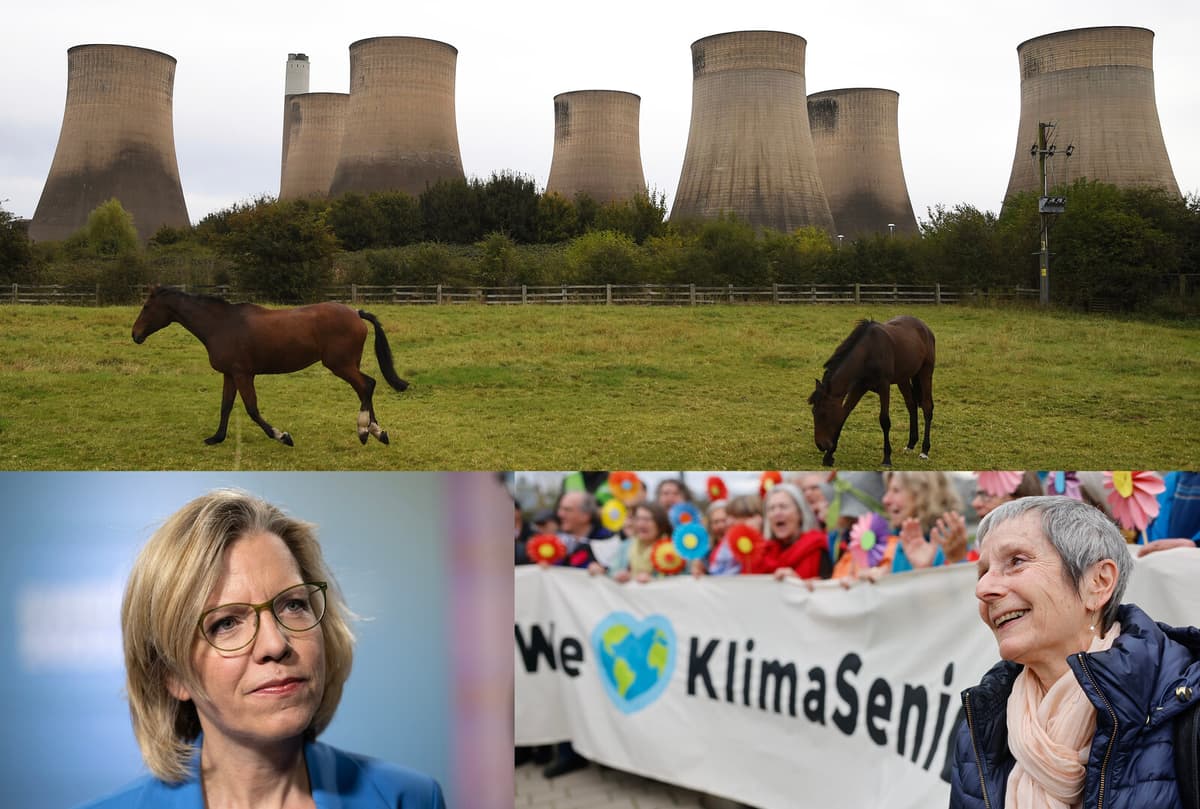The final whistle in British coal-fired power plants
An era came to an end when the UK, as the first G7 country, phased out coal-fired power. Coal has played a crucial role in industrialization, and the country's first coal-fired power plant was commissioned as early as 1882. When the last coal-fired power plant was shut down 142 years later, the UK had burned 4.6 billion tons of coal – equivalent to emissions of 10.4 billion tons of carbon dioxide, according to Carbon Brief.
Controversial EU law in harbor
Austria's Environment Minister went against her government's chief and, after many twists and turns, the EU's controversial nature restoration law was finally adopted.
The legislation is fundamentally about how meadows and wetlands can be recreated, forests mixed, and green areas created in cities. The goal is to implement measures that cover at least 20 percent of the EU's land and water area by 2030 and restore all ecosystems that need to be restored by 2050.
Citizens' Council for the Climate
Last spring, Sweden's first national Citizens' Council on the climate was held. 60 randomly selected individuals met to learn about research, discuss solutions, and come up with proposals on how Sweden can reduce emissions. The Citizens' Council has presented 22 concrete proposals.
The Citizens' Council has shown that the polarized debate on climate policy does not necessarily reflect how ordinary Swedes want to discuss the issue, says Tim Daw, project leader and researcher at the Stockholm Resilience Centre.
Strong support for tougher climate goals
Several major surveys this year have shown strong Swedish support for climate action. For example, a Sifo survey from the Swedish Society for Nature Conservation shows that three out of four Swedes think it is important for the government to pursue a policy that leads to Sweden achieving its climate goals. According to a survey from Fairtrans, a majority does not want politics to prioritize low fuel prices compared to investments in the transition to a fossil-free society. The Climate Policy Council can also show that there is broad support for Sweden's climate goals and more climate measures in Sweden.
The results show that there is strong popular support for climate transformation in Sweden, but that it is crucial that measures are perceived as fair, says Daniel Lindvall, doctor of sociology at Uppsala University.
Pensioners got it right in historic climate ruling
In April, the European Court of Human Rights ruled that Switzerland had violated human rights by failing to meet its emission targets. Although two other climate cases were dismissed, including one in which Sweden was among the countries being sued, the ruling can create a ripple effect for how other courts approach the growing number of climate cases around the world.
For Sweden, it can have significant consequences since we currently have a government that not only fails to reduce emissions at an insufficient rate but actually increases them, says Beatrice Rindevall, chair of the Swedish Society for Nature Conservation.
In November, the world's largest coral reef was discovered off the Solomon Islands in the Pacific Ocean. A discovery that raises hope, considering that coral reefs are threatened in many tropical waters.
Both the UK and Brazil, as well as the United Arab Emirates, submitted new national climate commitments (NDCs) well ahead of the deadline, putting pressure on other countries to deliver on time.
Chairmen and CEOs from 30 of the country's largest trade unions have taken a seat in the classroom and will take an intensive course in "Trade Union Leadership for a Just Climate Transition" to boost their climate competence.
Global investments in renewable energy were almost double those in fossil energy in 2024, according to the International Energy Agency (IEA).






